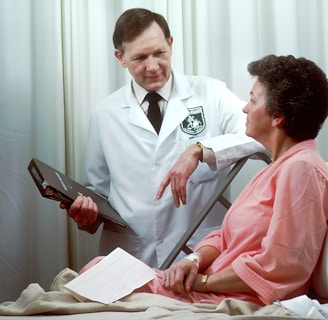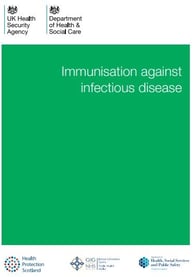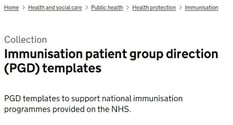Other useful links and further reading:
Lancet article leading to decision to move from 2+1 to 1+1 schedule
Vaccinating Welders against pneumococcal - systematic review & meta analysis and further interesting analysis here
Pneumococcal vaccination: guidance for health professionals
Pneumococcal disease: guidance, data and analysis
Pneumococcal vaccination programme: Documents relating to the pneumococcal vaccination programme for infants.
Managing clusters of pneumococcal disease in closed settings: Guidelines for managing serious pneumococcal disease in hospitals, care homes, prisons, children’s day-care centres and military settings.
Recent Updates & News
13th June: An update to the Pneumococcal Green Book chapter. PCV 10 removed from the list (which was never used previously in the programme) and also check out this statement "PCV20 is expected to replace PPV23 in adults over 65 years and the at-risk programme in late 2025/early 2026"... watch this space I guess!
5th June 2025: PGD template update for PCV.
2nd June 2025: The Pneumococcal vaccination: information for healthcare practitioners guidance has also been updated and some slide sets have been removed relating to this programme. This is also useful as it focuses specifically on the changes to the pneumococcal programme: Changes to the infant pneumococcal conjugate vaccine schedule: information for healthcare practitioners
30th April: A BIG update came along today - the 'changes to the routine childhood schedule letter'. Big read with lots of changes to absorb. I won't repeat it all here but do have a good read.... some of this relates to PCV13 scheduling on the childhood prog. (see UKHSA webinar link on news page in June and consider registering for more info). Expect Green Book updates, PGD changes and perhaps a small amount of chaos while we adapt to the changes. Keep calm and keep the kettle on....
31st March 2025: The annual reports from the national PPV immunisation programme are here. The main findings were that coverage in those aged 65 and over was 73.1%, an increase of 1.3 percentage points compared with the 2022/23 financial year. Coverage increased with age from 34.8% in those aged 65 to 85.3% in those aged 75 and over. Coverage in those aged 2 to 64 in one or more clinical risk group was 46.5%. Coverage in clinical risk groups ranged from 34.3% (chronic liver disease) to 84.2% (cochlear implants). See the report for more details.
5th March 2025: This is an interesting read BUT PLEASE NOTE IT IS AMERICAN and nothing has changed in the UK at the time of writing. New Pneumococcal Vaccine Recommendations: What You Should Know. I wonder if the UK will follow a similar process. Interesting the bits about blanket programmes having higher vaccine coverage than risk-based ones. It seems similar with our Shingles programme with the age-based programme doing better than the risk-based one.
29th Jan 2025: UKHSA PCV Risk Groups PGD amended to include:
minor rewording, layout and formatting changes for clarity and consistency with other UKHSA PGD templates
details of a newly approved PCV15-valent vaccine (Vaxneuvance)
recommendation for PCV15 in addition to PCV13, in line with Chapter 25 updates in the Green Book
updated considerations for individuals anticipated to receive a cochlear implant
clarification of exclusion criteria for at-risk individuals aged 2 years and above
clarification of the immunisation offer to at-risk individuals aged 10 years and over
interval between PPV23 and PCV doses for at-risk patients clarified as 8 weeks, not 2 months, in line with Table 25.3 of the Green Book
update of adverse reactions in common to both PCV vaccines
31st July 2024 PGD template updated amended to:
confirm that PPV administration for occupational exposure should be under a Patient Specific Direction (PSD)
include an updated list of known adverse reactions
remove details of specific supply information for PPV (the supply route is now well embedded)
reflect clinical exceptions to the recommended 8 week interval between PCV and PPV vaccination in special considerations and additional information section
14 AUG 2023 Green Book chapter updated to include new conjugate vaccines, IPD incidence data, new section on recommendations for the routine use of pneumococcal vaccines. Updated information for individuals with cochlear implants.
Bits and bobs to casually drop into conversation
Did you know....
Not just a 'pneumonia' vaccine!!! Pneumococcal disease encompasses a wide range of infections caused by different types of pneumococcus bacteria (Streptococcus pneumoniae). There are over 90 different types of them, and vaccines have been produced to protect against the types that cause the most disease
The most common way to die of flu complications is pneumonia
In the UK, around 40,000 people a year get hospitalised with pneumococcal pneumonia OF ALL AGES. Even with antibiotics, pneumonia still causes death in up to 20% of cases.
Pneumonia is the leading cause of death in children worldwide. According to data from the WHO, pneumonia killed over 920,000 children in 2015, and accounts for 16% of all deaths of children under 5 years old.












